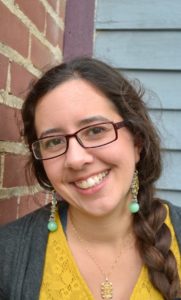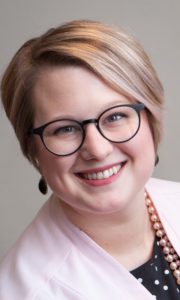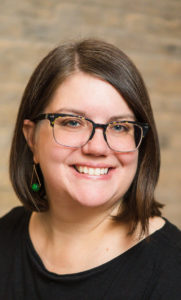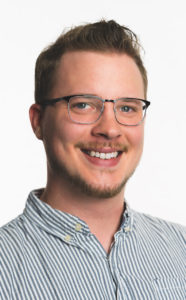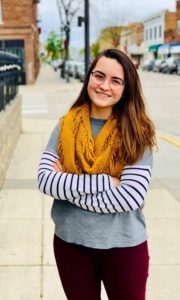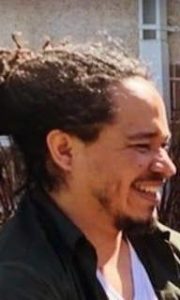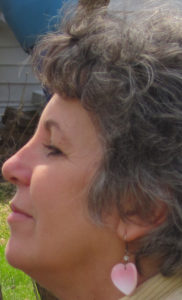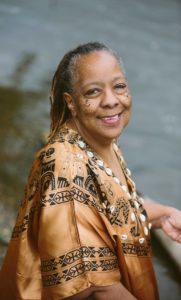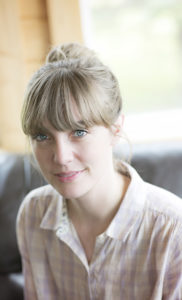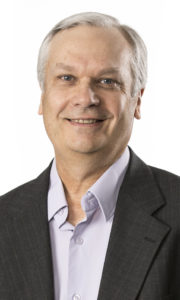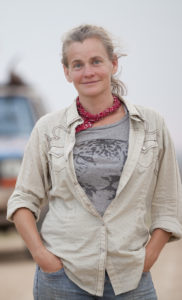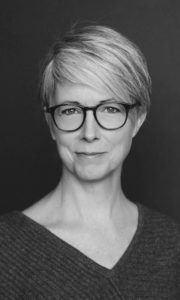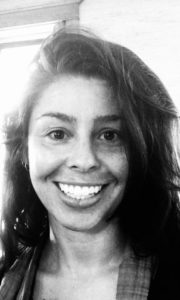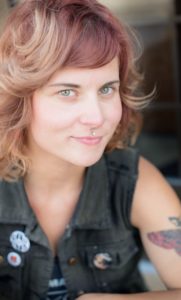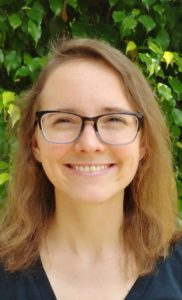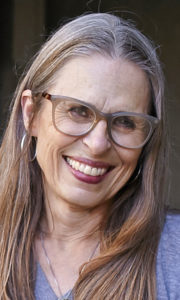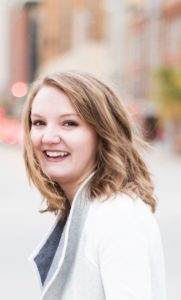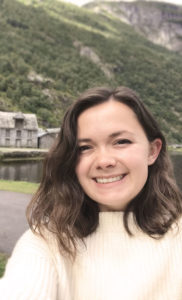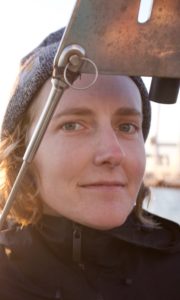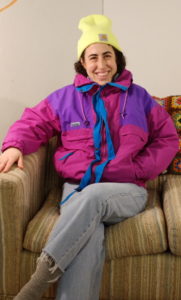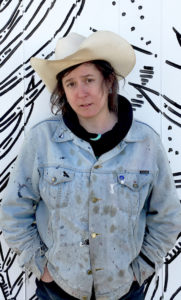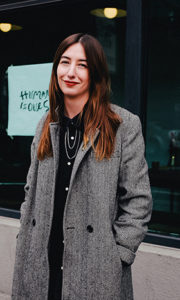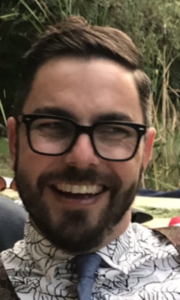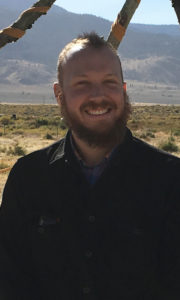Breakout Session B
Friday, October 4, 3:45 – 5:00pm
Locations: Reif Center, MacRostie Art Center, Old Central School, VFW (see below)
Artists on Main Street: A Model for Creative Community Development
Location: Wilcox Theater, Reif Center
Sarina Otaibi and Emily Kurash Casey (Preservation Alliance of Minnesota), Michele Anderson (Springboard for the Arts), Ben Strand (Winona Main Street), Sarah Swedburg (City of Willmar), John Salgado Maldanado (Artist)
Artists on Main Street was launched in 2018 by the Preservation Alliance of Minnesota and Springboard for the Arts to help connect Main Street leaders to their creative communities, and identify and engage under-recognized leaders to lead the creation of vibrant commercial districts. The program has provided training and project support for artists in seven communities, resulting in over 60 small projects that are helping activate downtowns and address local challenges. Session attendees will hear from Main Street directors and artists about the impact of these projects, receive a toolkit about how to start a similar program, and reflect on how artist-led engagement can help their own public processes be more proactive, creative, and inclusive. The session will also highlight the need for building partnerships between local Main Street programs, Cities, Economic Development Authorities, Chambers of Commerce, and local arts organizations in order to support artists as leaders in their communities.
Creating a Statewide Native Buying and Marketing Cooperative
Location: Ives Studio Theater, Reif Center
Pamela Standing (Minnesota Indigenous Business Alliance)
The Minnesota Indigenous Business Alliance (MNIBA) recently published the first ever tribal guide to cooperative development, a tool for creative and restorative economies, especially in rural communities. This year MNIBA is partnering with Cooperative Development Services to work on a statewide Native Artisan Buying and Marketing Cooperative. This effort includes convening artisans to come together and begin the process of fleshing out a feasibility study and what will meet the needs of these rural artisans. Participants will learn about other types of artisan cooperative in the US, Canada and Belgium, how this model is meeting the needs of isolated and rural communities, the nuts and bolts of cooperative development, and how this holistic model has the potential to increase an artisan’s exposure to new markets and improve an artisan’s livelihood. MNIBA will have its new expanded tribal guide to cooperative development to share with the participants.
Angry Black Women & Well-Intentioned White Girls: A Conversation Space on Race in Rural and Other Communities
Location: Sewell Dance Studio, Reif Center
Amoke Kubat (Yo Mama’s House Cooperative)
In 2015, Amoke Kubat authored her play “Angry Black Woman & Well-intentioned White Girl,” expressing the daily ‘unsaids’ between black and white women. In this conversational play, accusations and silences reflect our miseducation about each other, and the superficial and deep conflicts around our womanhood, ethnicities, rights, power, and constant juxtaposition of roles in the politics of white male patriarchy. ANGRY BLACK WOMAN and Well Intentioned White Girl goes deep into those hidden dehumanizing narratives, through storytelling and audience participation. In 2018, Amoke and partners across Northern Minnesota worked together to schedule a tour of this play to small towns and community spaces in Minneapolis, Cloquet, Cambridge, Sandstone, and Duluth. Each play reading was followed by conversations facilitated by black and white women. Amoke and partners from Minneapolis and northern Minnesota will share insights from this play tour and conversations (which are ongoing).
Spectacular Failures: How Changing The Way You Think About Failure Can Breathe New Life Into Artistic Processes.
Location: Johnson Dance Studio, Reif Center
Lauren Carlson (facilitator), John Davis, Erika Nelson
We often hear about the road to success (linear only in retrospect), but what about the paths that veer into the void? Not just a hiccup, but an utter, total failure. This humanizing discussion will focus on philosophies and strategies for reinvigorating creative work using failure as a means of exploration, discovery, and resilience. Panelists will offer true examples for overcoming epic failure and adversity and discuss subsequent unexpected lessons and surprises. Through this shared exploration of the embarrassing, each participant will see that success isn’t a guarantee, but a journey, with twists, false starts, and the permission to start over with a clean slate.
Building a Creative Community: Letting Artists Lead
Location: Andersen Dance Studio, Reif Center
Siobhan Spain (Mainframe Studios)
For the sake of your communities, do not underestimate your artists. Recruit them as you would a top manufacturer, or surgeon, or tech company. What would it be like to view them as not just nice to have, but as change agents and leaders? Slated to become the largest nonprofit art studio building in the nation, Mainframe Studios offers an entirely new approach for strengthening creative culture in cities of all sizes. By giving artists a rightful place and letting them lead, Mainframe Studios serves as a catalyst for significant community enhancements in Central Iowa. Its mission to provide permanent affordable workspace to artists of all disciplines. Mainframe Studios Director Siobhan Spain will share details about how the project began, its financial self-sustaining business model and stunning stories of community impact. Get a playbook for upgrading perceptions of what artists are capable of to unleash the real power of creative people.
Bikes, Plants and Overlooked History: Artist-led Processes for Local Pride and Identity
Location: Choir Room, Grand Rapids High School
Jessica Gorman (community artist), Dana Sikkila (Project Bike), and Carolyn Runck (Strategist + Creative)
Artists play a significant role in helping their rural communities recognize, reframe and activate their natural, historical and cultural assets, which increases local pride, identity, and a spirit of collaboration. In this session, get a glimpse into the minds of three rural artists and how they approach this work in their communities. Jess Gorman will share the creative processes behind “Follow the Yellowstone Trail”, “Prohibited Acts” and “Art Spark” projects which reinvigorated interest in a historic roadway connecting rural MN communities and the Volstead House of Granite Falls, the historical home of prohibition and the women behind cooperative act Legislator Andrew Volstead; Carolyn Runck will invite participants to explore how the natural features of our communities – qualities such as flora, fauna, geology, and weather patterns – play an important role in community identity and forming an environment that fosters creative leadership in all community members; and Dana Sikkila will share stories from “Project Bike,” a state-wide bicycle tour of art studios in Minnesota that has resulted in a grassroots network advocating that art and artists are truly part of our chemistry as individuals, as communities, and as a state.
Topophilia: Mapping a Sense of Belonging
Location: MacRostie Art Center (downtown Grand Rapids)
Mary Jones
Deep mapping is a creative approach to mapping which interweaves many disciplines and focuses on story and cultural geography. Originally coined by William Least Heat-Moon in his book, PrairyErth: A Deep Map, deep maps traditionally examine small rural areas. Participants will learn about two community mapping projects: Topophilia and the Walking Book. Topophilia invites participants to identify their “markers,” that is, features of the built or natural environment that carry significant meaning for them. Through a series of prompts, participants identify these markers, as well as markers for feeling out of place. The Walking Book is a simple folded structure made in the pattern and direction of a walk. Called an ox-plow or a snake book, the contents of this structure are built out of the participant’s sensory observations during the walk. Supplies will be provided for participants to make a blank book structure which will be theirs to keep and use.
It Takes a Village: Innovative Rural Housing Partnerships
Location: Old Central School, Room 209 (downtown Grand Rapids)
Courtney Bergey Swanson (Community and Economic Development Associates), Miranda Moen (Architectural Designer)
When a group of local high schoolers in Spring Grove, MN, met with city leaders to discuss their vision for the community, leaders expected to entertain the students’ desires for a Dairy Queen or new basketball hoops at the park. Instead, students expressed their interest in learning about affordable housing. These conversations led to the students working with a local architectural designer, exploring trends in affordable housing design, and designing an efficient, beautiful home rooted in modern Norwegian design to honor Spring Grove’s heritage as the first Norwegian settlement in Minnesota. Eventually, Habitat for Humanity agreed to become a partner and build the home, now known as Spring Grove Heritage House, which will be built in 2019. In this session, learn strategies and lessons learned throughout the Spring Grove Heritage House project, particularly the ultimate goals of addressing affordable housing while cultivating local partnerships and creating a deep sense of purpose for students.
The After Hours Hours (or why my bar tab is a valid expense for reimbursement)
Location: Grand Rapids VFW Post 1720 (downtown Grand Rapids)
Kelly Gregory, Zoe Minikes, Mary Welcome, Corbin LaMont, Jack Forinash, Spencer Kroll (Homeboat)
Talking to your neighbor is political! Hanging out is radical action! Homeboat will share their process of deep community engagement and creating culturally creative, relevant strategies in small towns. This workshop will include audience participation and sharing of tools used to address different social, economic, and political divides. The work will be presented through a process of storytelling, anecdotes, and live acting. Beyond being practical and personal, this workshop will be F-U-N. We believe that the bulk of community work happens after hours and beyond the meetings; we’ll discuss the taxonomies of after-hours social practice and the power of working in collaboration outside of the office. We’ll do some social practicing and make new friends along the way.

